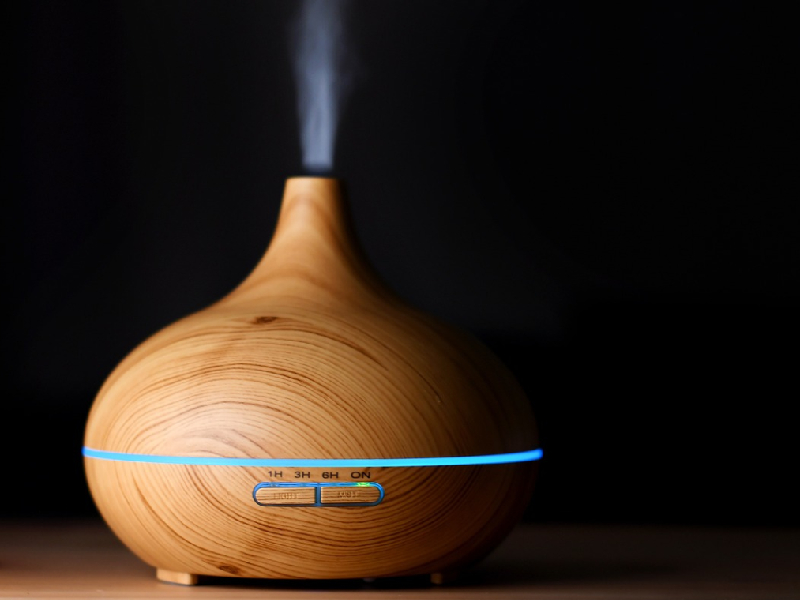Embracing Winter Comfort: A Heartfelt Guide to Choosing the Perfect Humidifier
2023-12-24 09:26
As the winter approaches, our homes begin to feel the invasion of dry air. Dryness not only causes discomfort to our skin, but can also exacerbate respiratory problems and even damage wooden furniture and floors. In this context, a humidifier has become an indispensable appliance in our lives. However, faced with numerous choices of humidifiers in the market, how can we select the most suitable one for ourselves? This article will provide you with a comprehensive guide to help you choose the ideal humidifier in the United States.
Understanding the Necessity of a Humidifier
Before delving into how to choose a humidifier, it is important to recognize the significance of a humidifier. Maintaining an appropriate indoor humidity level is crucial for a healthy living environment. Dry air can lead to dry skin, sore throat, nasal discomfort, and even worsen asthma and allergy symptoms. Humidifiers can effectively increase indoor humidity, alleviate these discomforts, protect furniture and wooden floors, reduce static electricity, and safeguard electronic devices.
Understanding Different Types of Humidifiers
Humidifiers in the market are mainly categorized into the following types:
Steam Vaporizers: They generate steam by electrically heating water, which is then cooled and released into the air. They are relatively inexpensive but produce heat during operation.
Ultrasonic Humidifiers: They use ultrasonic vibration technology to transform water into fine mist, operate quietly, and are suitable for use in bedrooms.
Evaporative Humidifiers: They utilize a fan to blow over a moistened filter or wick, allowing water to evaporate into the air. They come with humidity control functions and can automatically adjust output based on environmental humidity.
Warm Mist Humidifiers: They heat water to boiling to produce warm steam, suitable for use in cold environments as they can help raise indoor temperatures.
Determining Your Needs
After understanding the types of humidifiers, the next step is to determine your needs. You need to ask yourself the following questions:
Space Size: How large is the space you need to humidify? Different humidifiers are suitable for different sizes of spaces.
Climate Conditions: What is the climate like in your area? Is it dry or humid?
Health Conditions of Household Members: Are there asthma patients, allergy sufferers, or children in your home?
Frequency of Use: How do you plan to use the humidifier? Will you use it every day, or only during specific seasons or times?
Functional Requirements: Do you need the humidifier to have special functions, such as a timer, humidity display, remote control, or compatibility with smart home systems?
Maintenance and Cleaning: Are you willing to regularly maintain and clean the humidifier?
Noise Level: Humidifiers produce varying levels of noise during operation. If you are sensitive to noise or plan to use it in a bedroom or office, choosing a low-noise humidifier will be important.
Budget: How much are you willing to invest in a humidifier? The budget will directly affect the type and features of humidifiers you can choose.

Checking the Features of the Humidifier
After determining your needs, you need to check the features of the humidifier to ensure that it meets your requirements. Here are some features to consider:
Water Tank Capacity: The larger the water tank capacity, the longer the humidifier can run without needing frequent refills.
Output Control: Humidifiers that allow you to adjust the moisture output can enable you to regulate the humidity level according to your actual needs.
Maintenance and Cleaning: Some humidifiers are designed for easy cleaning and maintenance, which is crucial for maintaining air quality and extending the lifespan of the humidifier.
Noise Level: Especially for bedroom use, a low-noise humidifier can ensure it does not disturb your sleep.
Filtration System: High-quality filtration systems can remove impurities from water, providing healthier moisture.
Auto Shut-off Feature: When the water tank is empty, the humidifier can automatically shut off, which is a necessary safety feature.
Reading User Reviews and Professional Comments
After selecting several humidifiers that meet your needs, do not forget to read user reviews and professional comments. This information can provide practical details from actual use, helping you understand the pros and cons of each humidifier. Pay attention to comments about humidifier performance, durability, and customer service.
Purchase and Trial
Finally, when you have made a decision, you can purchase your humidifier. However, trying it out after purchase is equally important. Make sure to use it at home for a few days to see if it meets your needs. If you are not satisfied, most retailers offer a return policy, so do not hesitate to return and exchange.
FAQs
During the process of selecting a humidifier, consumers often have some common questions. Here are some typical questions and their answers, which hopefully will help you better understand the selection and use of humidifiers.
What is the ideal humidity setting for a humidifier?
The ideal indoor humidity level is typically between 30% and 50%. Low humidity can cause dry skin and respiratory discomfort, while high humidity can lead to mold growth and furniture damage. Many humidifiers come with a humidity gauge or sensor to help you monitor and adjust indoor humidity.
How often should a humidifier be cleaned?
This depends on the type of humidifier and how frequently it is used. It is generally recommended to clean it at least once a week to prevent the growth of bacteria and mold. If you use an evaporative or ultrasonic humidifier, make sure to replace or clean the filter according to the manufacturer's guidelines. Always use clean water to fill the humidifier and regularly clean the water tank.
Are humidifiers safe for pets?
Most humidifiers are safe for pets, but there are some precautions. Ensure that the humidifier is placed in a location where pets cannot reach it to prevent them from being harmed by hot steam or electrical wires. If your pets are sensitive to certain substances, choose a humidifier that does not contain fragrances or chemical additives.
What is the difference between a humidifier and an air purifier?
The main function of a humidifier is to increase indoor air humidity, while an air purifier is designed to remove pollutants from the air, such as dust, pollen, smoke, and pet dander. Some devices combine the functions of a humidifier and an air purifier, allowing for simultaneous humidity regulation and air purification.
Does using a humidifier increase energy consumption?
Humidifiers do consume electricity, but their energy consumption is relatively low. Steam and warm mist humidifiers typically consume more electricity than ultrasonic and evaporative humidifiers because they require heating water. To save energy, you can choose a humidifier with an automatic shut-off feature and an energy-saving mode.
Can a humidifier be used in a bedroom?
Yes, but make sure to choose a humidifier suitable for bedroom use. Ultrasonic humidifiers are particularly suitable for bedrooms due to their low noise levels. Ensure that the humidifier's water tank is large enough to support overnight operation and has a night mode to avoid disrupting sleep.
Can a humidifier help alleviate cold and flu symptoms?
Proper humidity can help alleviate symptoms such as sore throat, nasal congestion, and dry cough caused by dry air. A humidifier can provide necessary moisture to dry indoor air, offering comfort and potentially helping to alleviate some symptoms of colds and flu.
Can fragrances or essential oils be added to a humidifier?
This depends on the type of humidifier. Some humidifiers are designed to be used with fragrances or essential oils, while others may be damaged by the addition of these substances. Before adding any fragrances or essential oils, be sure to read the manufacturer's instructions.












 Facebook
Facebook
 Ins
Ins